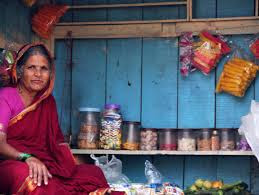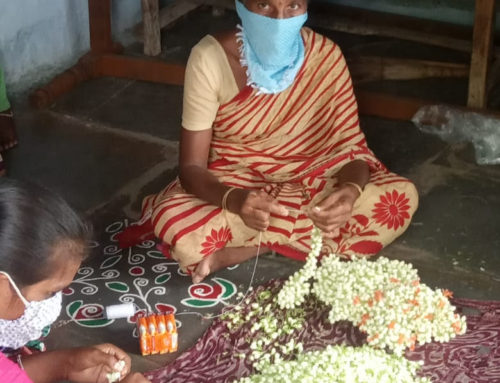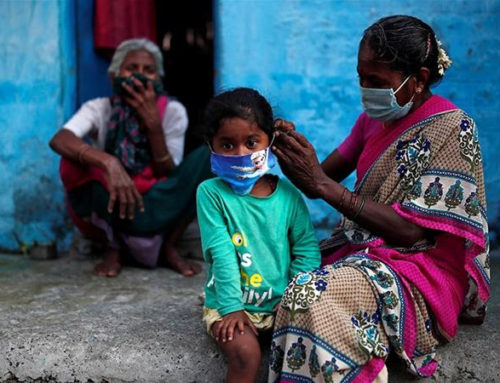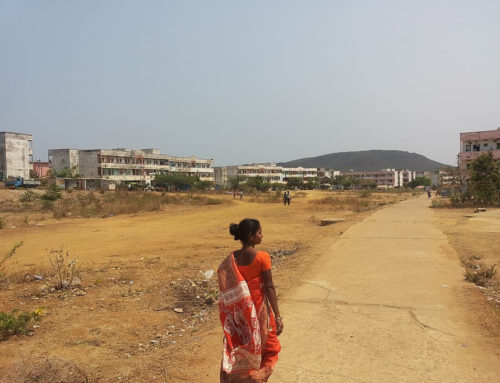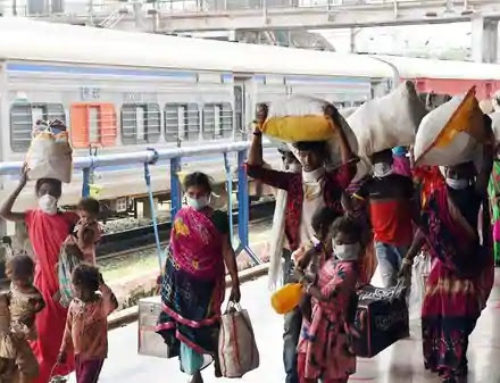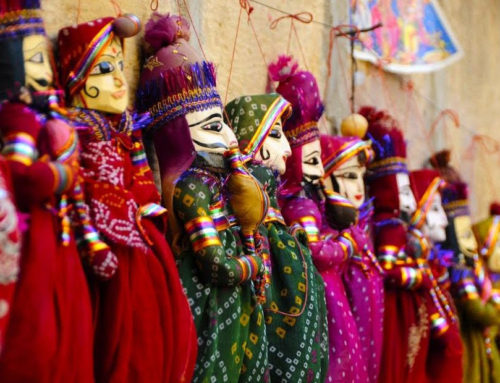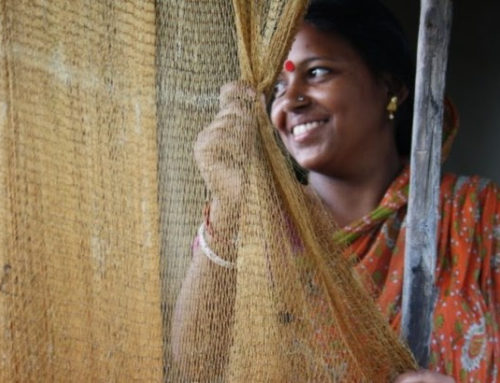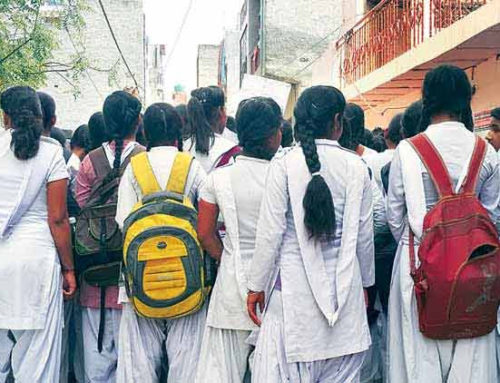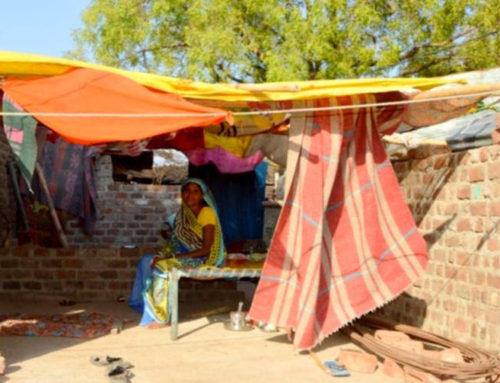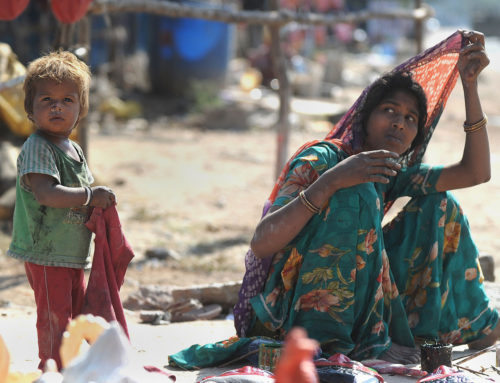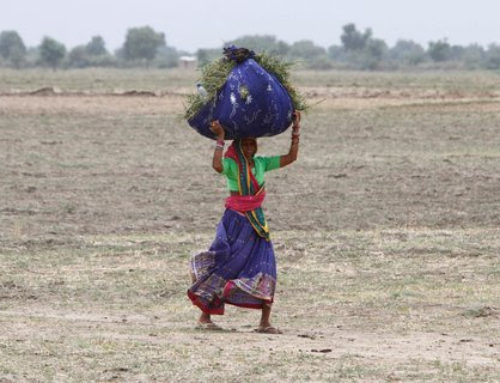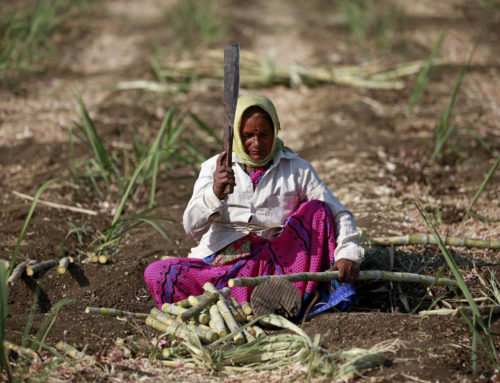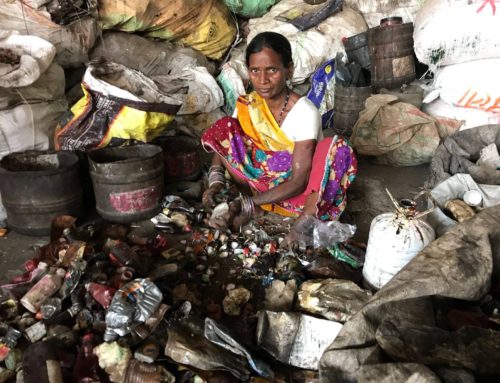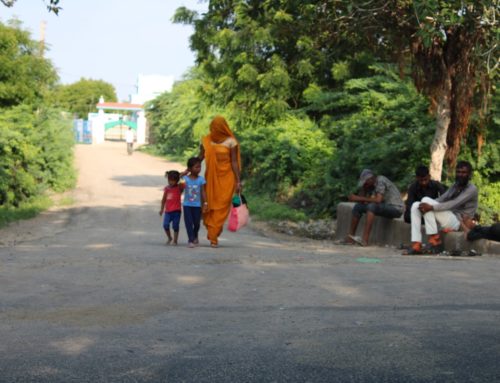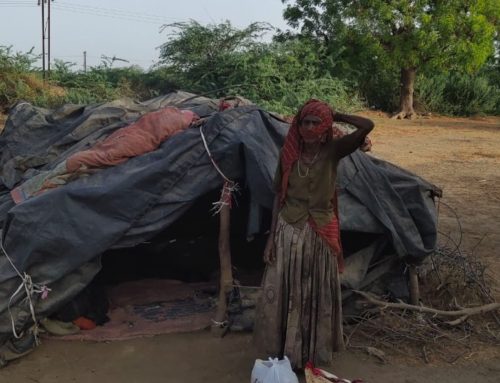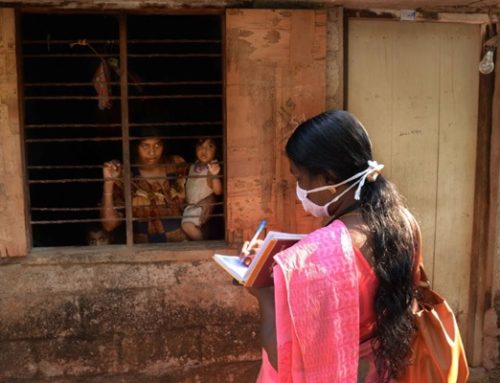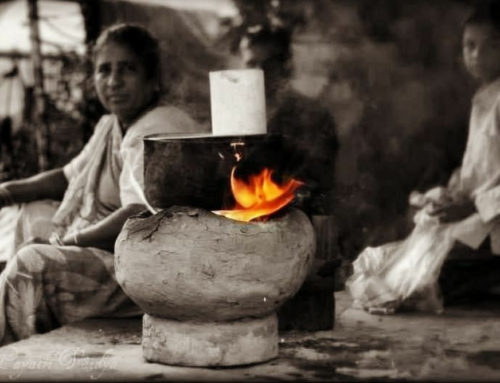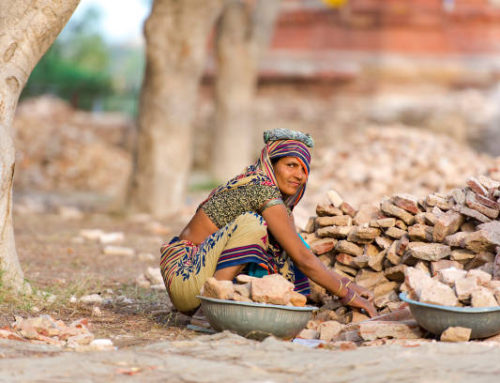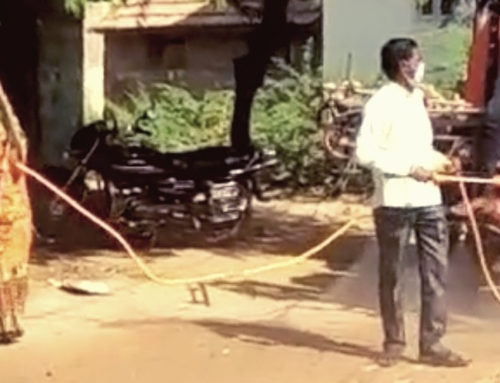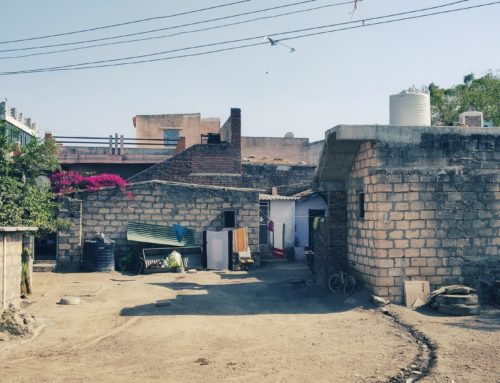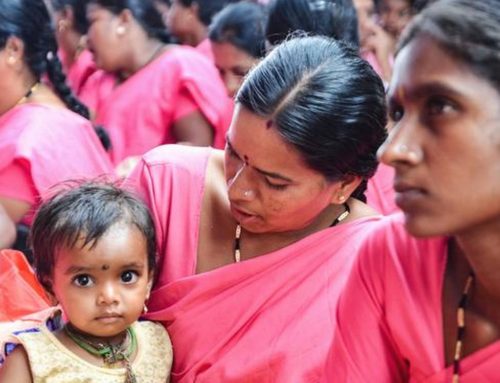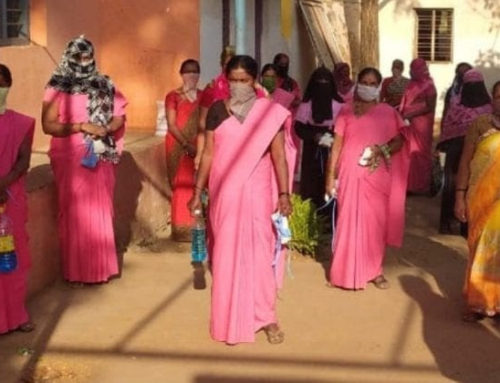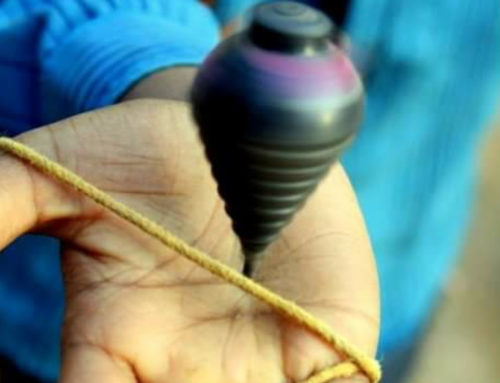Farzanaben is from Bajana – a village in Surendranagar district of Gujarat. She and her husband with their 5 children live in a one-room house owned by her mother-in-law. They used to live in a rented house but moved here a decade ago after the demise of her mother-in-law. Farzanaben lives in constant fear of being ousted since her husband has three brothers and eventually the tiny house will be divided three ways. The 52 year old woman has 4 grown daughters aged 26, 22, 20 and 17 and hence she has turned the kitchen in her house into a bathroom and now the family does her cooking outside.
The couple has a paan shop, on the mosque premises, which they run together for the 6 months of non-agricultural season. For the other 6 months, they take turns running the shop and going on the fields to nearby farming villages to work for a sum of Rs. 125-150 for a 6 hour shift. Her son is studying in class 8. They pay rupees 300 has rent for the shop.
With no income from the shop or from farming for the last three months, the family has exhausted all their savings. Eid is an important festival for the family, the only time of the year when children get new clothes, this year however, saw no festivities.
Farzanaben has cut down extensively on their intake of food to survive through the 3 months. She cut down the use of oil to one fourth the quantity they earlier consumed. The family did not eat vegetables but survived mostly on pulses as received by the government.
Farzanaben gets her supply for the paan shop from bigger shops in and around the village and also from Patdi. With the lockdown slowly opening up, Farzanaben is worried about the future since they do not have the money to replenish supplies for their shop. While the tension of the house is constant, to add insult to injury, Farzanaben stresses about restarting her life and that of her family’s for the lack of funds. The family has never had to borrow money or take loans before but, since at the moment they do not have cash, Farzanaben is worried because she will have to replenish her shop on credit amount. It is a cause of great distress for her because of the uncertainty of the entire situation – with the purchasing power of her customers going down, money is hard to come by and hence repayment of loans is a slippery downward slope.
Case Studies reported by: SWATI Team
Location: Gujarat

